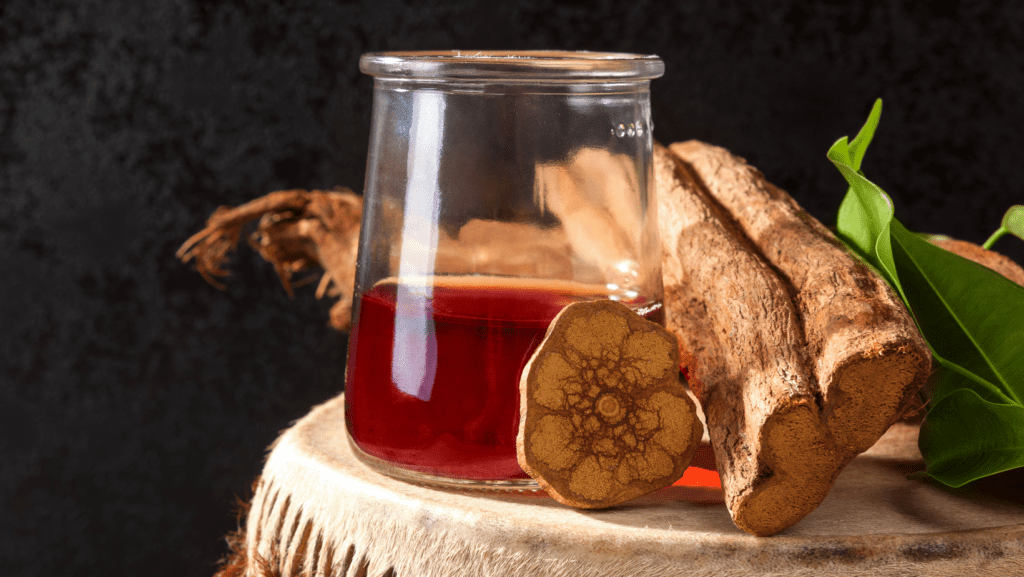Ayahuasca is a powerful plant medicine used for centuries by Indigenous Amazonian communities in spiritual and healing ceremonies. Made from the Banisteriopsis caapi vine and the Psychotria viridis leaf, it contains DMT (dimethyltryptamine), a psychoactive compound that induces altered states of consciousness. Traditionally, people use it to promote deep introspection, emotional healing, and a sense of connection to the self and the universe. In recent years, Ayahuasca has gained global attention, attracting seekers from all walks of life—yet many myths and misconceptions persist. Some see it as a dangerous drug, while others believe it holds instant enlightenment. The truth, as always, is more complex. In this article, we’ll debunk the five of the most common Ayahuasca myths and explore the real benefits of this powerful plant medicine. But first, a short overview of what Ayahuasca is and how it is consumed.
What is Ayahuasca?
Ayahuasca is a powerful, plant-based brew traditionally used by Indigenous communities in the Amazon rainforest for spiritual and healing purposes. The brew combines the Banisteriopsis caapi vine, which contains harmala alkaloids, with the leaves of the Psychotria Viridis plant, which contains DMT (dimethyltryptamine). When consumed together, these plants create a synergistic effect that induces profound psychological and physical experiences. Ayahuasca has been used for centuries to promote introspection, emotional healing, and a deeper connection to the spiritual world. Recently, it has gained attention outside of the Amazon, with many people seeking Ayahuasca retreats in Mexico and other parts of the world, hoping to experience its transformative potential.

How is Ayahuasca Consumed?
Ayahuasca is typically consumed in a ceremonial setting, often with the guidance of an experienced facilitator or shaman. The brew is prepared by boiling the Banisteriopsis caapi vine and the Psychotria viridis leaves for several hours, extracting their active compounds. During an Ayahuasca ceremony, participants usually drink a small cup of the brew, which has a very bitter taste. The effects generally begin within 30 to 60 minutes and can last anywhere from 4 to 6 hours, depending on the individual and the dose. In some cases, participants may experience purging (vomiting or diarrhea), a natural and cleansing part of the process. After consuming Ayahuasca, the experience can involve intense visions, emotional releases, and deep introspection, often guided by the ceremonial music and chants provided by the shaman or facilitator.
Let’s now take a closer look at five of the most common Ayahuasca myths and separate fact from fiction.
Ayahuasca myths: Debunking common misconceptions
As Ayahuasca gains popularity in wellness circles and spiritual retreats, many myths and misconceptions about plant medicine have surfaced. From its safety to its supposed instant transformative power, these myths often mislead those who are curious about the potential benefits of Ayahuasca. To help clarify the reality, we’ll take a closer look at five of the most common misconceptions about Ayahuasca and explain the truth behind them.
Myth 1: Ayahuasca is a Dangerous Drug
One of the most common Ayahuasca myths is that it’s simply a hallucinogenic drug people use for recreational purposes. While it’s true that Ayahuasca induces vivid visions and alters states of consciousness, calling it just a drug oversimplifies its profound effects. Ayahuasca is a sacred plant medicine with a deep spiritual and therapeutic purpose, often consumed in the context of Ayahuasca ceremonies led by trained facilitators. The active compounds in the brew, primarily DMT and harmine, interact with the brain to open the mind, allowing individuals to access repressed emotions, unresolved trauma, and hidden aspects of their psyche.
This process often leads to deep introspection and healing. Instead of serving as a quick, temporary escape like typical recreational drugs, Ayahuasca acts as a powerful tool for personal growth, offering insights that can help participants confront long-standing emotional challenges, process difficult life experiences, and achieve greater self-awareness. The journey with this incredible Amazonian plant can be intense, but its benefits, both psychological and spiritual, are often transformative and long-lasting.
Myth 2: ayahuasca is dangerous and unsafe
Another common misconception is that Ayahuasca is inherently dangerous. In reality, when taken in a controlled, properly guided setting, it is generally safe for most individuals. Ayahuasca ceremonies are conducted under the supervision of trained or experienced shamans who create a supportive environment for healing. The setting plays a crucial role in ensuring safety, as a well-structured Ayahuasca retreat provides emotional and psychological support throughout the experience. However, it’s important to note that individuals with pre-existing health conditions or those on certain medications should consult with a healthcare professional before participating, as there can be potential interactions (here is a list of restricted health conditions). Retreats like Aloee Wellness REBORN healing retreat offer guidance tailored to individual needs, ensuring participants have the best possible experience while minimizing risks.
Myth 3: ayahuasca offers instant enlightenment
One of the most common myths surrounding Ayahuasca is the belief that it can offer immediate enlightenment or instant transformation, providing a quick fix to deep-rooted issues or leading to sudden, profound spiritual awakening. However, Ayahuasca is not a magic solution or a one-time cure-all. While the Ayahuasca ceremony can indeed lead to powerful emotional and psychological revelations, it is important to understand that the journey of healing and self-discovery is far more complex and ongoing. During an Ayahuasca experience, participants may receive deep insights into their emotions, past traumas, or life purpose, but these insights are only the beginning.
The effects on the brain and emotional state are not instantaneous. Real, lasting change takes time, often requiring continuous reflection, integration, and inner work long after the ceremony ends. Healing is a gradual process, with Ayahuasca offering a catalyst for personal growth that unfolds over a longer period. Participants may need ongoing support and time to incorporate the teachings from their experience into their everyday lives, making transformation a sustained journey rather than an immediate shift. In addition, while ayahuasca can be a powerful tool for healing and personal growth, it’s not a substitute for professional mental health treatment.
Myth 4: Ayahuasca Leads to Permanent Altered States of Consciousness
Some individuals fear that Ayahuasca will permanently alter their mind or consciousness. While it’s true that Ayahuasca induces a temporary altered state of consciousness, this experience is not permanent. During the ceremony, the brew’s psychoactive compounds, including DMT, interact with the brain, leading to vivid visions, deep introspection, and sometimes profound emotional experiences. These effects can last for several hours, but once the brew’s influence subsides, the altered state fades, and participants typically return to their normal state of mind. However, the insights gained from the experience can have lasting impacts and reveal subconscious fears, unresolved trauma, or new perspectives on personal issues, which can lead to long-term transformation. In other words, while the immediate altered state is not permanent, the personal growth and healing it catalyzes can continue to unfold for weeks, months, or even years as participants integrate their experiences into their daily lives.
Myth 5: All Ayahuasca Ceremonies are the Same
A common myth is that all Ayahuasca ceremonies are identical, but this couldn’t be further from the truth. The ceremonies can vary greatly depending on the facilitator, the location, and the tradition followed. While there are common elements, such as the preparation, consumption, and integration phases, the overall experience can differ greatly. For example, in a traditional Amazonian ceremony, an indigenous shaman or curandero leads the participants through the experience, often incorporating prayers, songs (called icaros), and spiritual guidance passed down through generations.
In contrast, Ayahuasca retreats outside the Amazon, such as those in Mexico, may be led by experienced facilitators who combine traditional techniques with Western approaches to healing. Even the preparation of the Ayahuasca brew can vary. Some facilitators might adjust the proportions of the plants or add other ingredients to customize the experience. Again, some ceremonies may focus on healing, while others may emphasize spiritual growth or community bonding. While many lack sufficient introductions, the truly effective ones always take time to prepare the participants before the rituals and the consumption. As a result, you need to research the specific retreat or ceremony you’re considering to ensure it aligns with your expectations and personal needs.
Aloee Wellness Ayahuasca ceremonies and retreats
Ayahuasca is a complex and multifaceted substance with a rich cultural heritage. By understanding the facts and dispelling common myths, we can approach Ayahuasca with greater respect, awareness, and responsibility. If you’re considering participating in an Ayahuasca ceremony, it’s crucial to do your research and choose a reputable facilitator to ensure a safe and transformative experience.
Aloee Wellness REBORN Healing Retreats and Jungle Ceremonies offer a thoughtfully designed environment where expert facilitators lead participants through time-honored healing rituals. With a focus on individualized care and spiritual development, Aloee creates a secure and supportive space for deep introspection and transformation.



